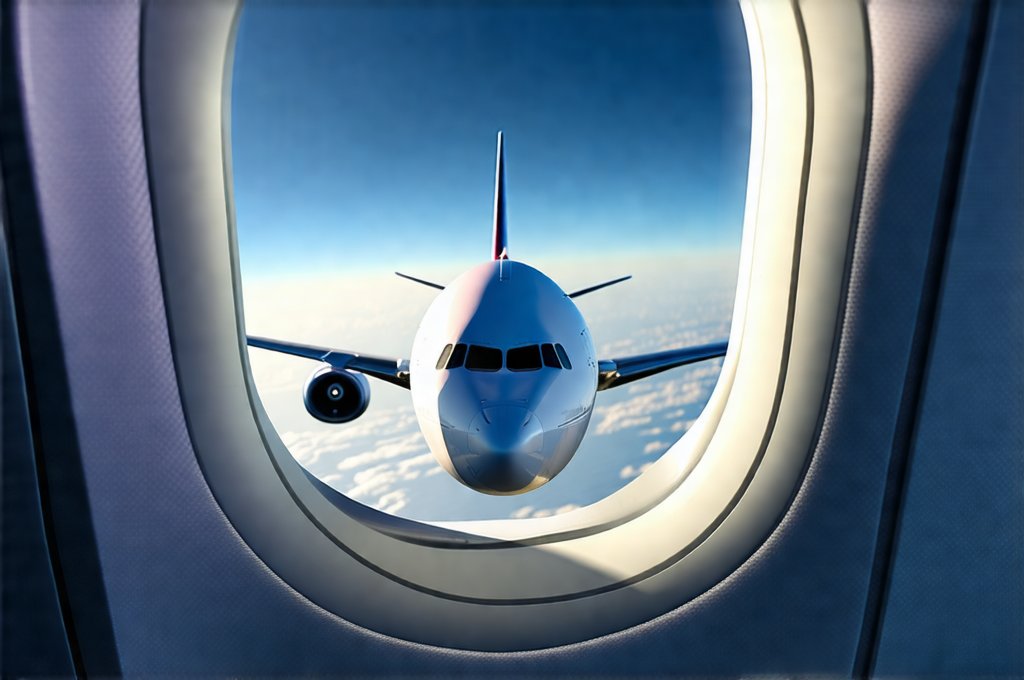Traveling long distances by air is often an exciting prospect, filled with anticipation for new adventures or reunions with loved ones. However, the experience isn’t always smooth sailing – or rather, flying. Many travelers find themselves grappling with unexpected physiological changes during and after flights, and one surprisingly common issue is disruption to bowel habits. This can range from mild constipation to more noticeable bloating, gas, and even diarrhea. While often dismissed as a minor inconvenience, these disruptions can significantly impact comfort and enjoyment while traveling, prompting many to seek understanding of the underlying causes and potential remedies.
The reasons for stool disruption during long-distance flights are multifaceted and extend beyond simply being confined in a small space for extended periods. A complex interplay of factors – including changes in air pressure, cabin humidity, altered dietary habits, decreased physical activity, and even psychological stress – contributes to this phenomenon. It’s important to understand that the digestive system is sensitive to environmental shifts, and the unique conditions found on airplanes can disrupt its normal functioning. This article will explore these contributing elements in detail, offering insights into why stool disruption occurs during flights and providing practical strategies for mitigating its effects.
The Physiological Impact of Flight
The airplane environment itself plays a substantial role in digestive upset. Cabin air is significantly drier than most land-based environments – typically below 20% humidity – which can lead to dehydration. Dehydration directly impacts stool consistency, making it harder and more difficult to pass, thus contributing to constipation. Furthermore, the lower air pressure within the cabin (equivalent to altitudes of 6,000-8,000 feet) can cause gases in the digestive tract to expand, leading to bloating and discomfort. This expansion isn’t always noticeable as pain but can contribute to a feeling of fullness and altered bowel function. Understanding stool signs is crucial for recognizing potential issues.
Beyond dehydration and pressure changes, the simple act of sitting for prolonged periods restricts physical activity, slowing down peristalsis – the wave-like muscle contractions that move food through the digestive system. A sedentary lifestyle generally contributes to constipation, and this effect is amplified during flights. This lack of movement impacts not just the speed of digestion but also the overall efficiency of the gut, potentially leading to a build-up of waste and discomfort. It’s worth noting that even seemingly minor changes in cabin temperature can affect digestive processes; fluctuations can either accelerate or slow down bowel movements depending on individual sensitivity. Learning about stool testing insights could help you understand your body’s response to these conditions better.
Finally, the stress associated with travel – from navigating airports to anxiety about flying itself – can significantly impact digestion. Stress triggers the release of cortisol, a hormone that can disrupt gut motility and alter intestinal permeability. This means the gut’s ability to absorb nutrients and eliminate waste effectively can be compromised, further contributing to stool disruption. These physiological factors all interact with one another, creating a complex scenario for digestive health during long-distance flights. You might find tools for gut checks helpful in managing stress and its impact on digestion.
Dietary Considerations During Travel
Diet plays a pivotal role in managing bowel function both generally and specifically during travel. Many travelers deviate from their usual dietary habits when traveling, often opting for convenient but less-digestible options available at airports or on the plane. High-fat foods, processed snacks, and sugary drinks can all contribute to digestive upset. Fiber intake is particularly important; a lack of fiber slows down digestion and makes stools harder. Conversely, excessive fiber without sufficient hydration can also lead to constipation, so finding the right balance is crucial.
Pre-flight dietary adjustments can be immensely helpful. In the days leading up to a flight, focusing on a diet rich in fruits, vegetables, and whole grains provides the gut with ample fiber and promotes regular bowel movements. Avoiding gas-producing foods like beans, broccoli, and carbonated beverages may also reduce bloating during the flight. On the plane itself, opting for lighter meals and staying well-hydrated are essential. Water is undeniably the best beverage choice; avoid excessive caffeine or alcohol, as these can exacerbate dehydration. Understanding how stool bacteria ratios relate to your diet can further optimize gut health.
Consider packing your own healthy snacks to ensure you have control over your dietary intake. Options like nuts (in moderation), dried fruits, whole-grain crackers, and fruit pouches are all good choices. If you know you’re prone to constipation, discussing potential stool softeners with a healthcare professional before your flight could also be beneficial – but never self-medicate without consulting a doctor. A comprehensive stool analysis might help identify specific dietary sensitivities.
Hydration Strategies for Air Travel
As mentioned earlier, dehydration is a key contributor to stool disruption during flights. Maintaining adequate hydration isn’t merely about drinking water when you feel thirsty; it’s about proactively staying hydrated throughout the journey. The dry cabin air accelerates fluid loss, making consistent intake even more important. A general guideline is to drink at least 8 ounces of water every couple of hours during a flight, but individual needs may vary depending on factors like body weight and activity level.
Beyond plain water, consider incorporating hydrating foods into your travel diet. Fruits with high water content, such as watermelon, oranges, and grapes, are excellent choices. Similarly, vegetables like cucumbers and celery can contribute to overall hydration. Avoid excessive intake of diuretics like coffee, tea, and alcohol, which promote fluid loss.
Another helpful tip is to avoid sugary drinks, which can actually draw water into the digestive system, potentially causing bloating and discomfort. Packing a reusable water bottle and filling it up after passing through security allows you to have a readily available source of hydration throughout your journey. Remember, staying hydrated isn’t just about preventing constipation; it also supports overall health and well-being during travel. It’s important to know top early signs that indicate dehydration or other digestive issues.
Minimizing Sedentary Behavior on Flights
The prolonged sitting associated with long-distance flights significantly impacts digestive function. To counteract the effects of inactivity, incorporate movement into your flight whenever possible. Simple exercises like ankle rotations, leg stretches, and shoulder rolls can help stimulate blood flow and encourage peristalsis. Getting up to walk around the cabin periodically – when safe to do so – is also highly beneficial.
Even small movements can make a difference. While seated, try contracting and relaxing your abdominal muscles repeatedly; this gentle exercise can help massage the digestive system and promote bowel movement. Avoid crossing your legs for extended periods, as this can restrict blood flow and impede digestion.
Many airlines now offer in-flight entertainment systems with guided stretching or mindfulness exercises. Utilizing these resources can provide a structured way to incorporate movement into your flight. Furthermore, if you have a connecting flight, use the layover time to walk around the airport and increase physical activity. Prioritizing even minimal movement during travel can significantly improve digestive health and overall comfort.


















